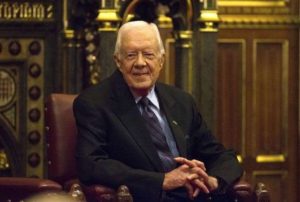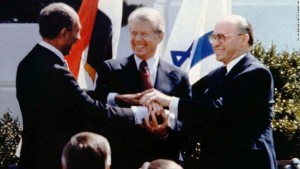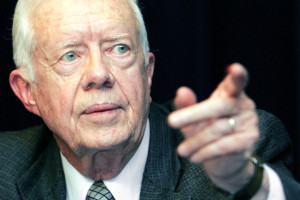Former President Jimmy Carter is resting tonight in a hospital in Winnipeg, Manitoba, Canada, where he collapsed doing the Lord’s work.
He was working on a construction site for Habitat for Humanity, an organization with which he has been associated since leaving the presidency in January 1981.
President Carter, who’s 92 years of age, holds an unusual record as the former president who’s lived more years after leaving the White House than any of his predecessors.
My point here, though, is to make two make comments.
One is that this man has done more for humankind since leaving the pinnacle of power than any of the men who preceded him — or succeeded him.
My second point is to scold those who continue to hold Jimmy Carter up as some sort of model of fecklessness. He deserves nothing of that kind of treatment.
His defeat for re-election was stunning in its scope. Ronald Reagan swept him out of office by winning 44 states in a landslide of historic proportions. How was that possible? Because The Gipper and his campaign team managed to lay all of the nation’s troubles at Carter’s feet.
The Iranian hostage crisis dragged on for 444 days, beginning in November 1979. President Carter’s team worked tirelessly during that entire time to negotiate the release of the individuals held captive by those radicals who passed themselves off as “students.” Yes, we experienced that tragic failed rescue attempt in April 1980 that ended with planes crashing in the desert and eight Air Force Special Forces troops dying in the inferno. Was that the president’s fault? Did he err in attempting such a daring rescue? That debate will continue for as long as human beings are alive to debate it.
The blame is a consequence of failure, fair or not.
The president, though, did manage to broker a Middle East peace agreement between Egypt and Israel. The treaty stands to this day, thanks to the tireless work done at Camp David by Jimmy Carter, who browbeat, cajoled and persuaded Egyptian President Anwar Sadat and Israeli Prime Minister Menachem Begin to sign the deal — and then shake hands in 1978 in that epic White House photo op.
That handshake, though, had its consequences. President Sadat was assassinated in 1981 by Islamic extremists who hated him for seeking peace with Israel. Indeed, the late Israeli Prime Minister Yitzhak Rabin would be killed in 1995 by a Zionist extremist who loathed the warrior Rabin for the handshake he had at the White House with PLO leader Yasser Arafat after another deal brokered by President Bill Clinton.
Jimmy Carter, I submit, does not deserve to be scorned the way he has been by Republicans and assorted Democrats over the years.
I’ll concede he won’t be ranked as the greatest of the great U.S. presidents. He had his flaws — as all human beings have them.
However, the humanity this great man has demonstrated over many decades gives him a special place in my own heart.
President Carter has preached to his fellow Habitat for Humanity workers to stay hydrated. He collapsed from, get this, dehydration.
Listen to yourself, Mr. President. And get better. This dangerous and hostile world still needs you.


